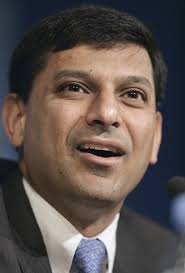
The committee, headed by the then Chief Economic Advisor Raghuram Rajan (now RBI governor) which was set up by the government amid demand for "special category" status by Bihar, suggested a new methodology for devolving funds on states based on a 'Multi Dimensional Index (MDI)'.
Giving details of the report Finance Minister P Chidambaram today said the committee has suggested that the 28 states be split into three categories -- least developed, less developed and relatively developed -- depending upon their MDI scores.
As regards the allocation of funds, the report suggested that each state should get a basic fixed allocation and an additional allocation depending on its development needs and development performance.
The demand for funds and special attention of different States, Chidambaram said, "would be more than adequately met by the twin recommendations of the basic allocation of 0.3 per cent of overall funds to each State and the categorisation of States that scores 0.6 and above as least developed States."
According to the Committee, these two recommendations, along with the allocation methodology, will effectively subsume what is now "Special Category" status.
Bihar along with some other states have been demanding "special category" status to get more funds from the centre.
Based on the MDI scores, the 10 least developed states are Odisha, Bihar, Madhya Pradesh, Chhattisgarh, Jharkhand, Arunachal Pradesh, Assam, Meghalaya, Uttar Pradesh and Rajasthan.
The seven most developed status are Goa, Kerala, Tamil Nadu, Punjab, Maharashtra, Uttrakhand and Haryana.






Comments
Add new comment